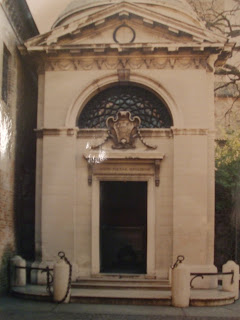Nabokov: Verbal Antics in "Pale Fire"
Nabokov is all about style and wordplay. He loved to poke fun at Freud and Freudians; and, though perhaps not as often, Dostoevsky (he accused "Dusty and Dusky" of sloppy writing and poshlost ). From the poem in Pale Fire : Fra Karamazov, mumbling his inept All is allowed , into some classes crept; . . . * And a fun example of Nabokov's wordplay/love-of-words (from the commentary): What the obituarist does not know is that Lukin comes from Luke, as also do Locock and Luxon and Lukashevich. It represents one of the many instances when the amorphous-looking but live and personal hereditary patronymic grows, sometimes in fantastic shapes, around the common pebble of a Christian name.





